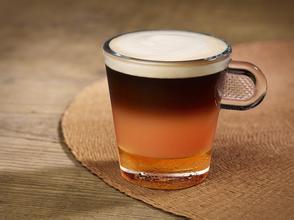Civet Coffee, one of the world's most expensive coffee, Indonesian Coffee Kopi Luwak
Civet Coffee (Kopi Luwak), native to Indonesia. It is one of the most expensive coffee in the world, with a price of several hundred US dollars per pound. It is extracted from the feces of the civet and processed. The civet eats the ripe coffee fruit and is excreted through the digestive system. After it is fermented through the stomach, the coffee produced has a special taste and has become a hot item in the international market. Kopi Luwak is made in Indonesia. In the early 18th century, the Dutch established coffee plantations in the Indonesian colonies of Sumatra and Java, and banned locals from picking and eating their own coffee fruits. Indonesian locals inadvertently found that civets love to eat these coffee fruits and will drain the beans intact when they poop.
Musk cats only choose the most ripe and sweetest coffee beans, which in itself is a natural screening. Second, locals find that these beans are fermented by the cat's stomach to produce coffee that tastes better than ordinary ones. Mellow and delicious Kopi Luwak has gradually become famous and become a hot product in the international market.
Kopi Luwak is produced by the feces of Indonesian coconut cats (a kind of civet) as raw materials, so it is called "Kopi Luwak". This kind of animal mainly feeds on coffee beans. After completing fermentation in the coconut cat's stomach, it destroys protein, produces short peptides and more free amino acids, reduces the bitterness of coffee, and then excretes feces as the main raw material. Because coffee beans cannot be digested, they are excreted and Kopi Luwak is made after washing and baking. Coffee critic Chris Rubin said, "the aroma of the wine is so rich and strong, and the coffee is incredibly rich, almost like syrup." Its thickness and chocolate taste, and lingering on the tongue for a long time, pure aftertaste. "
Coconut cats are omnivores. In addition to eating seeds, they also eat insects, snakes, birds, amphibians and reptiles, so the feces discharged by really wild coconut cats will be mixed with all kinds of substances. Local farmers in Indonesia catch coconut cats to raise them and feed coffee beans to make them. But after all, there are some differences between artificial cultivation and natural ones.
In the coffee industry, Kopi Luwak is widely regarded as a product with novelty as the selling point. "the consensus in the industry is that it tastes bad," said the American Special Coffee Association (Specialty Coffee Association of America,SCAA). SCAA quoted a coffee expert as saying: "obviously, the selling point of Kopi Luwak is its story, not its quality." Using the SCAA standard, Kopi Luwak scored two points lower than the lowest score for the other three types of coffee. It can be speculated that the processing of Kopi Luwak diluted the high-quality acidity and taste and made the taste more insipid. Of course, many people also seem to regard this insipid taste as the advantage of this kind of coffee. "
Coffee beans generally go through the process of shell fermentation, coffee beans in the civets' intestines, special bacteria provide a unique fermentation environment, the flavor becomes unique, particularly thick and mellow. The coffee beans fermented by civets' intestines and stomach are very thick and mellow.
Eva, the owner of Special Cafe, is a coffee enthusiast who travels around the world every year in search of rare goods. She told reporters that the "Kopi Luwak" was once a tribute from Indonesia to the Dutch royal family. At that time, the industry regarded the coffee with the name "cat shit" as a joke, and people didn't get interested in the Kopi Luwak until it was specially reported in National Geographic magazine.

Important Notice :
前街咖啡 FrontStreet Coffee has moved to new addredd:
FrontStreet Coffee Address: 315,Donghua East Road,GuangZhou
Tel:020 38364473
- Prev

Blue Mountain Coffee Jamaica Blue Mountain Coffee Fine Coffee Raw beans
Blue Mountain Coffee on the market, in the publicity of many coffee shops, Blue Mountain Coffee from Jamaica is the best coffee, costing at least NT $30 to NT $40 for a cup. But is the world's top coffee hawked by merchants really imported from Jamaica? Is it really worth that much? A few days ago, the reporter did not seem to pay close attention to this doubtful point.
- Next

Cuban Crystal Mountain Coffee Island Coffee beans Special Coffee beans unique Caribbean flavor
Crystal Mountain Coffee comes from the Crystal Mountain of Cuba, so it is called Cuban Crystal Mountain Coffee. Crystal Mountain Coffee is synonymous with top Cuban coffee, because this area not only grows coffee, but also produces quartz, crystal and other precious minerals. A prominent feature of Crystal Mountain Coffee is its large granule and bright green color of coffee beans. Its flavor and taste characteristics: full granules, uniform taste
Related
- Detailed explanation of Jadeite planting Land in Panamanian Jadeite Manor introduction to the grading system of Jadeite competitive bidding, Red bid, Green bid and Rose Summer
- Story of Coffee planting in Brenka region of Costa Rica Stonehenge Manor anaerobic heavy honey treatment of flavor mouth
- What's on the barrel of Blue Mountain Coffee beans?
- Can American coffee also pull flowers? How to use hot American style to pull out a good-looking pattern?
- Can you make a cold extract with coffee beans? What is the right proportion for cold-extracted coffee formula?
- Indonesian PWN Gold Mandrine Coffee Origin Features Flavor How to Chong? Mandolin coffee is American.
- A brief introduction to the flavor characteristics of Brazilian yellow bourbon coffee beans
- What is the effect of different water quality on the flavor of cold-extracted coffee? What kind of water is best for brewing coffee?
- Why do you think of Rose Summer whenever you mention Panamanian coffee?
- Introduction to the characteristics of authentic blue mountain coffee bean producing areas? What is the CIB Coffee Authority in Jamaica?

